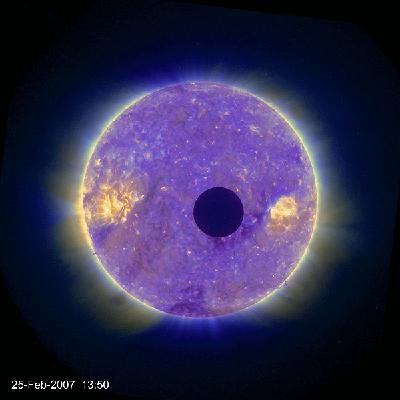| < | Wavepacket Blog only displaying 'predictions' posts |
> |
| << Newer entries << | |
| 2010 | |
| May | |
| Fri May 7 22:44:43 2010 Tree-Hugger Me |
|
| 2009 | |
| November | |
| Wed Nov 11 22:25:28 2009 Mt Baker opens tomorrow! |
|
| October | |
| Mon Oct 26 23:16:45 2009 No Moon |
|
| >> Older entries >> | |
| >> links >> | |
| Fri May 7 22:44:43 2010 Tree-Hugger Me I'm a die-hard environmentalist in spite of my SUV. |
|||
| Today I celebrated 6 weeks of commuting to and from work without driving!
This is all because I recently moved (see The Dream Tour), and I can bus to work and walk to almost everywhere I need to shop. I've been mostly commuting by public transit since December, but in March my parking pass ran out so I've been commuting 100% car-free since then. My gasoline consumption has dropped by around 50% or more compared to 2009, even though I often drive into the mountains on the weekends. However, I still drive a large black SUV that gets really crappy gas mileage. So I can't really call myself an environmentalist, can I? Well, actually I can and I do. I was inspired by this story, which pointed out that most people think about environmentally-friendly driving entirely wrong. Most people think that we can help the environment by buying cars with better gas mileage. But as the article noted:
So by moving and driving far less, I've actually reduced my carbon footprint much more than had I stayed where I was and bought a Prius. Don't get me wrong, eventually I'll get a greener car. But it won't be a Prius. It will be an SUV that has cleaner emissions. I need a truck with clearance, room for cargo and gear, and four wheel drive. That's another thing many people (including proclaimed environmentalists) get wrong, by the way. When it comes to the environment, gas mileage isn't important: emissions are important. The two are related, but they don't have to be. Car and truck manufacturers could be held to much stricter emissions than they are now. Paradoxically, better catalytic converters could slightly reduce gas mileage, but that would be overall worth it. So what is the responsible, green future for the planet? It won't be suburbia with hybrids. It will be people living much closer to where they work and shop, driving far less, in cars that have about the same gas mileage as now, but with lower emissions. That's going to be a big demographic shift, but it will be better for the atmosphere, and will also be forced by rising gasoline prices. Comments |
Related: economics science environment > predictions < Unrelated: books energy geopolitics lists mathematics |
||
| Wed Nov 11 22:25:28 2009 Mt Baker opens tomorrow! Ooops--looks like I got my weather prediction wrong |
|||
| A week or so ago, I made a weather prediction: this winter would be
warmer and drier than usual.
Well, I totally nailed it! Well, no, not at all, actually. At least, the past week or so has been very wet, rainy, and cold. You may or may not enjoy that in the city, but it means the mountains have gotten lots of snow. Best of all, Mt Baker is opening tomorrow (Thursday)! In fact, they've had over 80 inches of snow in 6 days, so they've had to issue a deep snow warning. I may have gotten my forecast wrong, but I did pick up a Season Pass. So perhaps I'll get some 2009 use out of it yet. There is a real danger that snow levels will rise and all this snow will melt, which has happened in past years. Sadly, I won't be able to make opening weekend. I'm hoping there is still some snow for me later in November. But for now, I'm psyched about Washington's early snow! Comments |
Related: > predictions < Unrelated: books economics energy environment geopolitics lists mathematics science |
||
| Mon Oct 26 23:16:45 2009 No Moon NASA reconsiders its spending |
|||
| Last year,
I whined about poor spending decisions at
NASA.
Well, it's clear that my high-profile blogging has finally attracted the attention of the White House! A few days ago, a White House panel concluded that NASA should avoid the moon for now, because it was too expensive and not a good use of money. Instead, the panel recommended "concentrating on new rockets and new places to explore." That's great! My original 2008 post said: NASA should focus on cheaper, robotic missions to meet scientific aims, and also work on parallel tracks on the chief obstacles to human missions: getting into space cheaply (propulsion out of Earth's gravity well), and surviving in a self-contained environment. So I feel somewhat vindicated. The panel has recognized the poor economics of a moon landing, and has also decided to focus on propulsion. Excellent! For some reason, NASA is still really keen on both the International Space Station, and manned spaceflight in general, which strikes me as just launching money into space. Don't get me wrong! I think we need manned spaceflight. But it is still too expensive. We need to work on the core technologies to make human spaceflight cheaper (and survivable) before we throw money at long-range manned missions. So I predict that NASA (and/or this panel) will come to the same conclusions eventually. That is, someone will sooner or later recommend scaling back human missions for now, in favor of more robotic ones. But in the meantime, this is a good sign. We'll get a lot more use out of our NASA dollars by skipping the moon! Comments |
Related: economics science > predictions < Unrelated: books energy environment geopolitics lists mathematics |
||
| Links: |  |
Blog Directory | Blog Blog | Technorati Profile | Strange Attractor |


